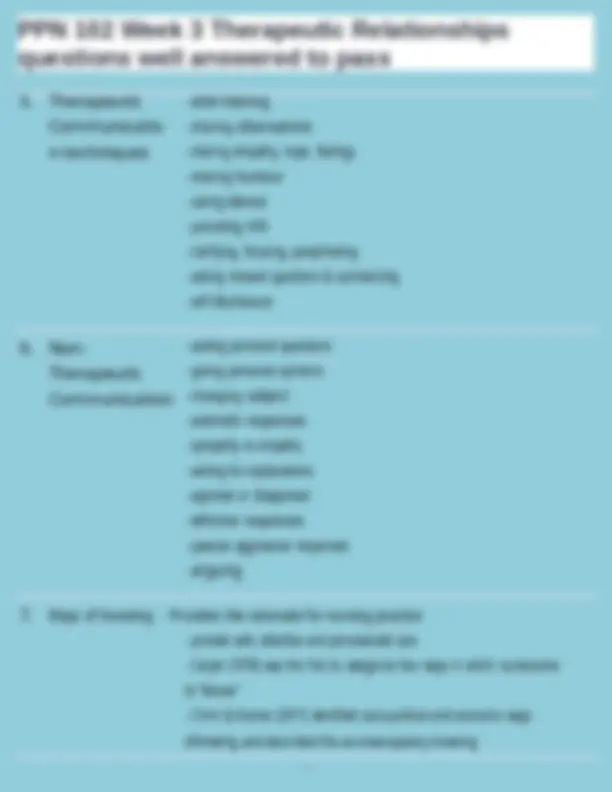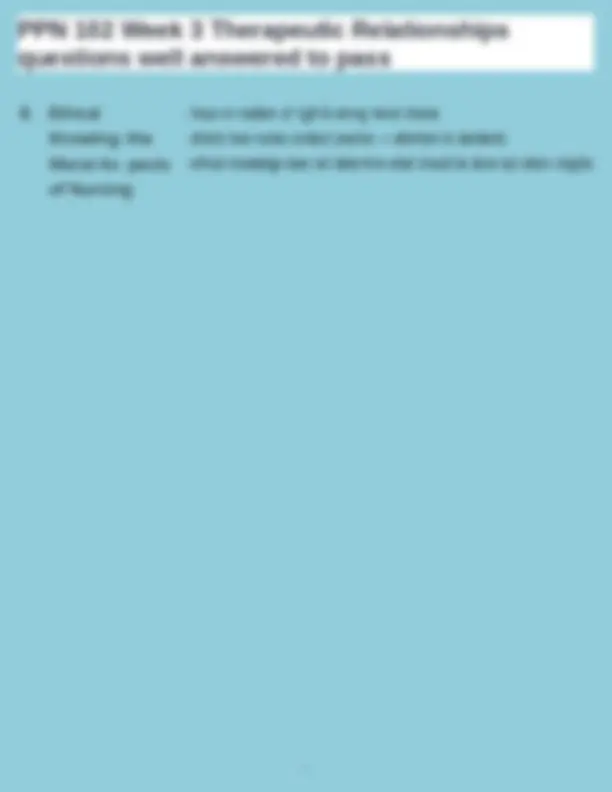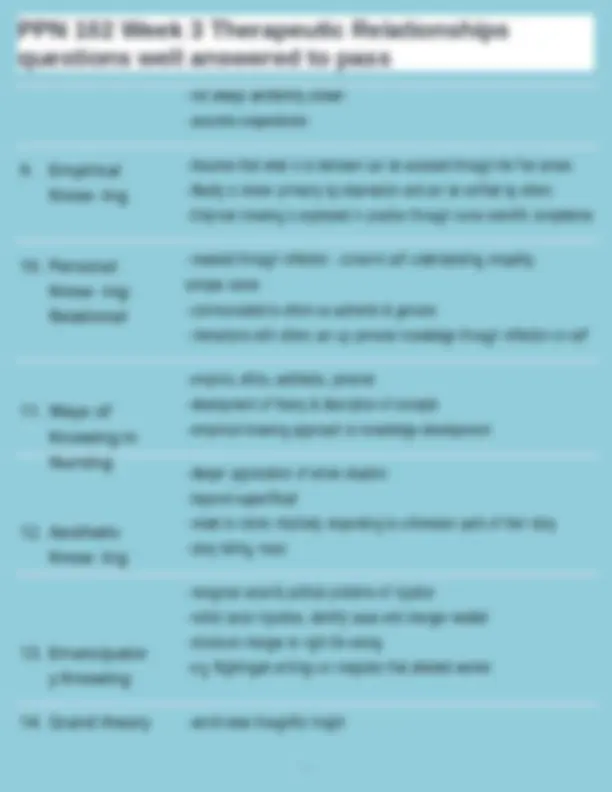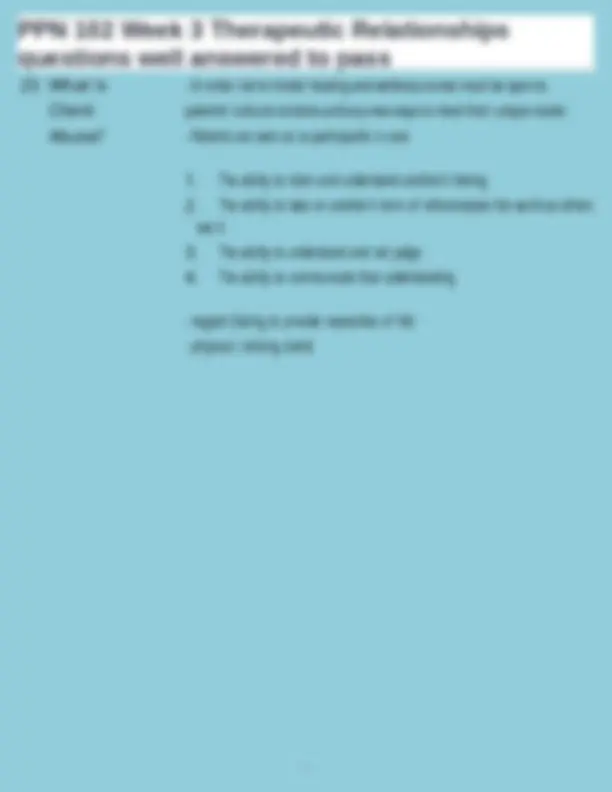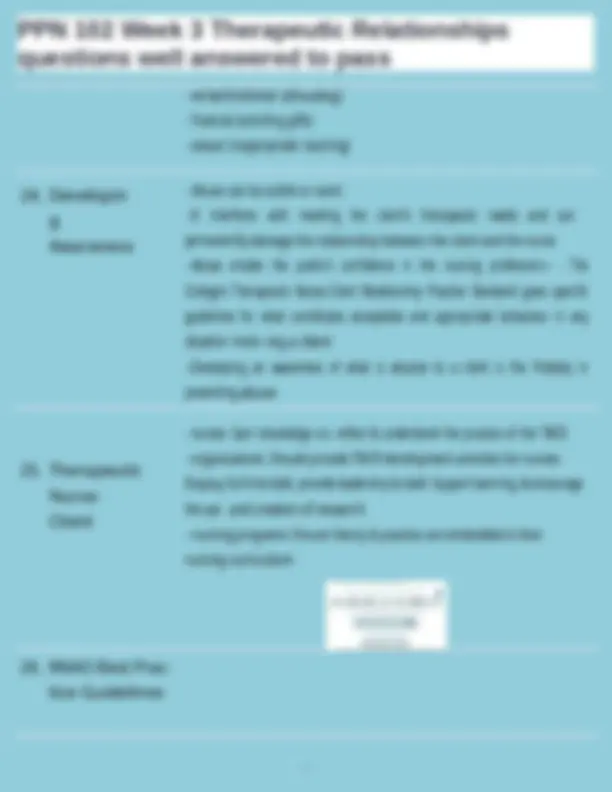PPN 102 Week 3 Therapeutic Relationships
questions well answered to pass
1. The Art & Sci-
-
refers
to
nurses'
intuitive
thinking
processes
about
the
nature
of
health
from
the
ence
ofTherapeu-
patient's
perspective
tic Relationships
2.
Theory & the
Therapeutic
Nur- seClient
Relation- ship
3.
Theory and
Ther- apeutic
relation-
shipTheory and
Therapeutic
rela- tionship
4.
Communicatio
n and
relational
practice
-
influenced by the nurse's life knowledge and professional experiences with
other
patients
-
rder to blend knowledge and experience with scientific understandings to
pro- videsafe, quality care
-
A
theory
is
a
set
of
assumptions
about
concepts
-
show
the
relationship
between
concepts
in
a
way
that allows
for
phenomena
to
be explained, predicted or prescribed
-
allows
phenomena
like
the
therapeutic
nurse-client Relationship
to
be
viewed
in
a systematic way
provide nurses with the necessary knowledge base for interacting with and
build- ing therapeutic nurse-client relationships (TNCR) and support person-
centered
nursing interventions.
-
to be in relation with other people, to take initiative in establishing and main-
taining relationships, and to be responsive to others is crucial to
interpersonal
communication
-
Relational
practice
is
guided
by
conscious participation
with
clients
using
a
num- ber
of
skills including
listening,
questioning,
EMPATHY,
reciprocity, self-
awareness,
reflection and a sensitivity to emotional contexts
-
Being
spontaneous,
genuine
and
honest
when communicating
are

